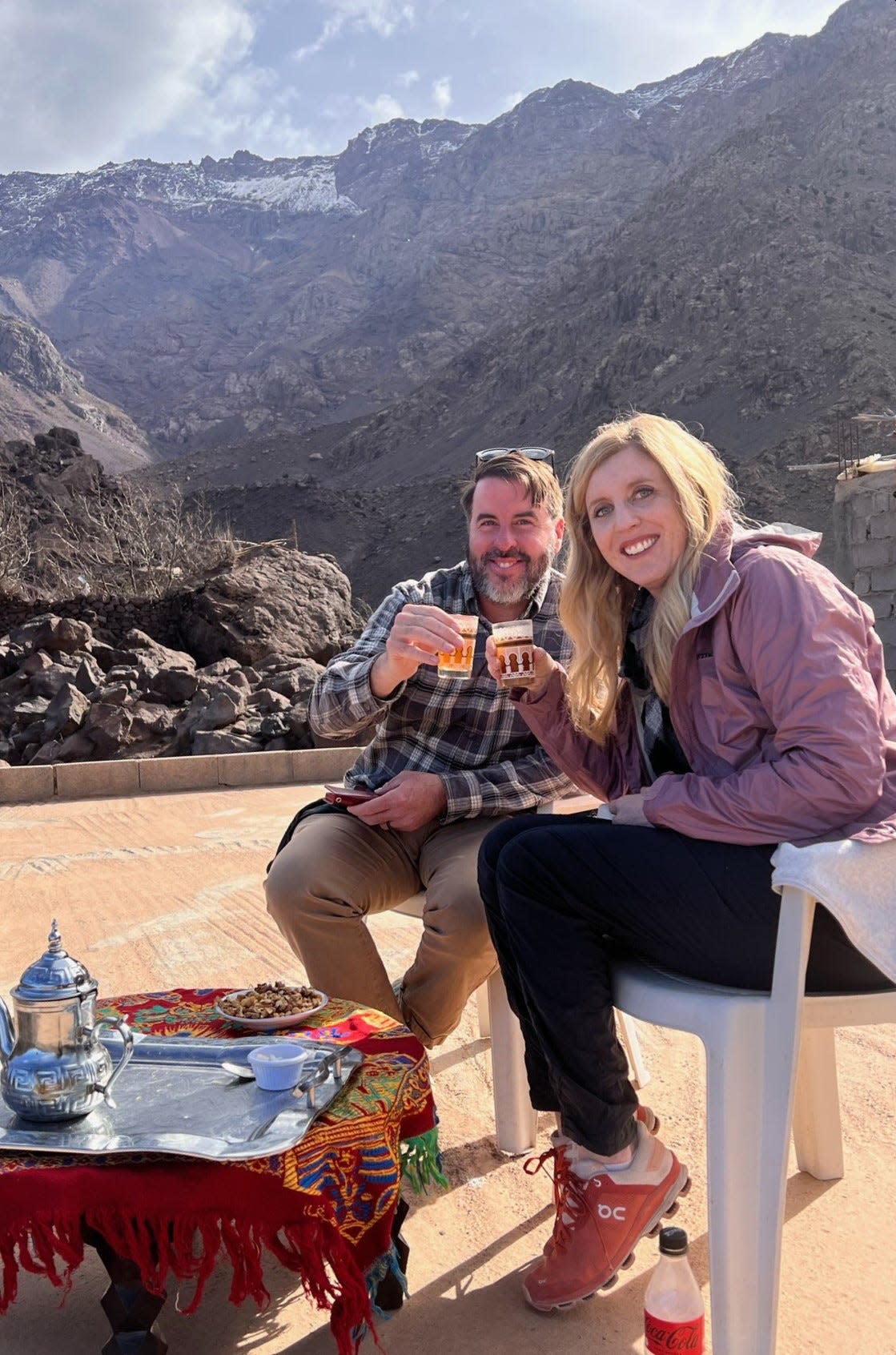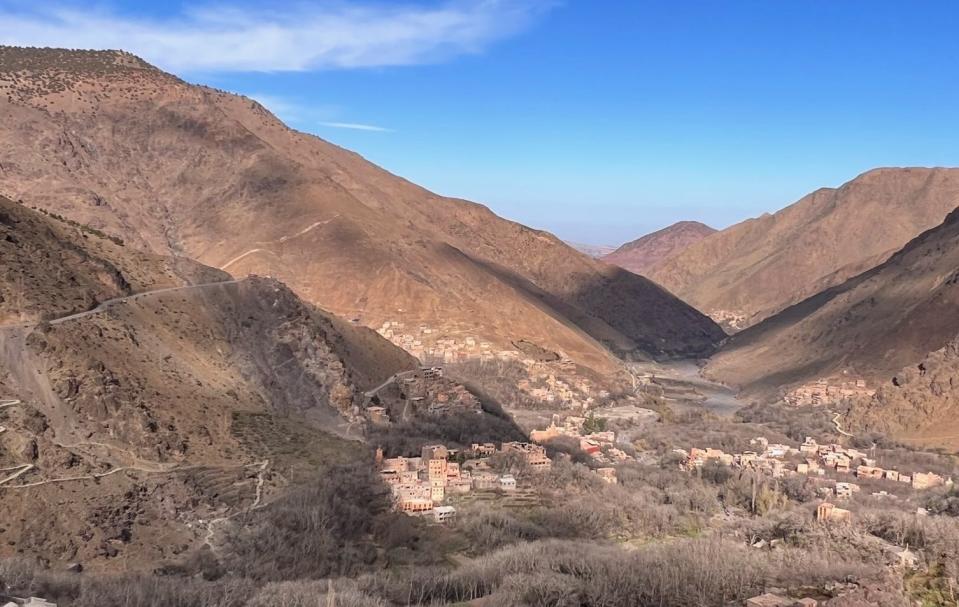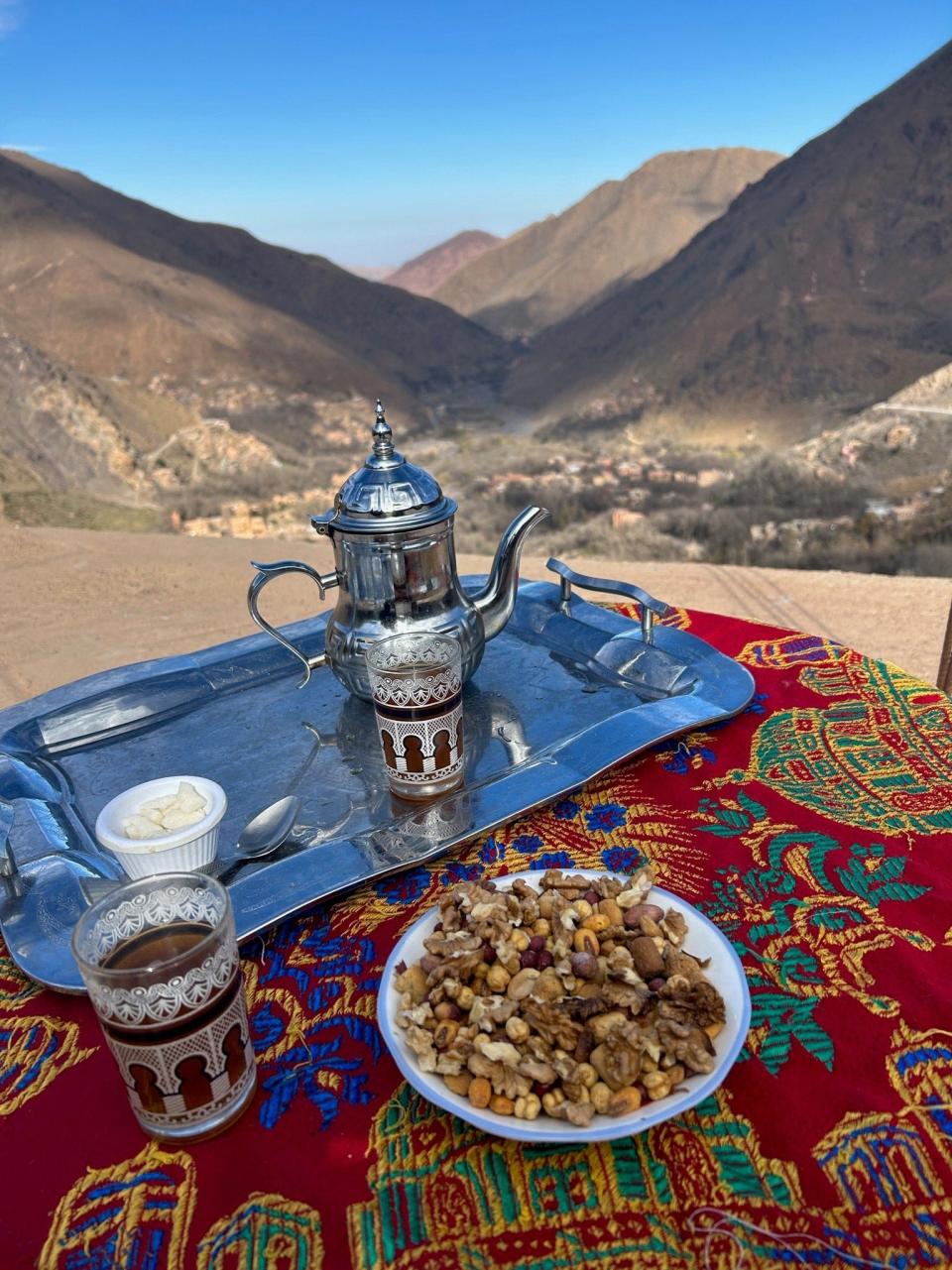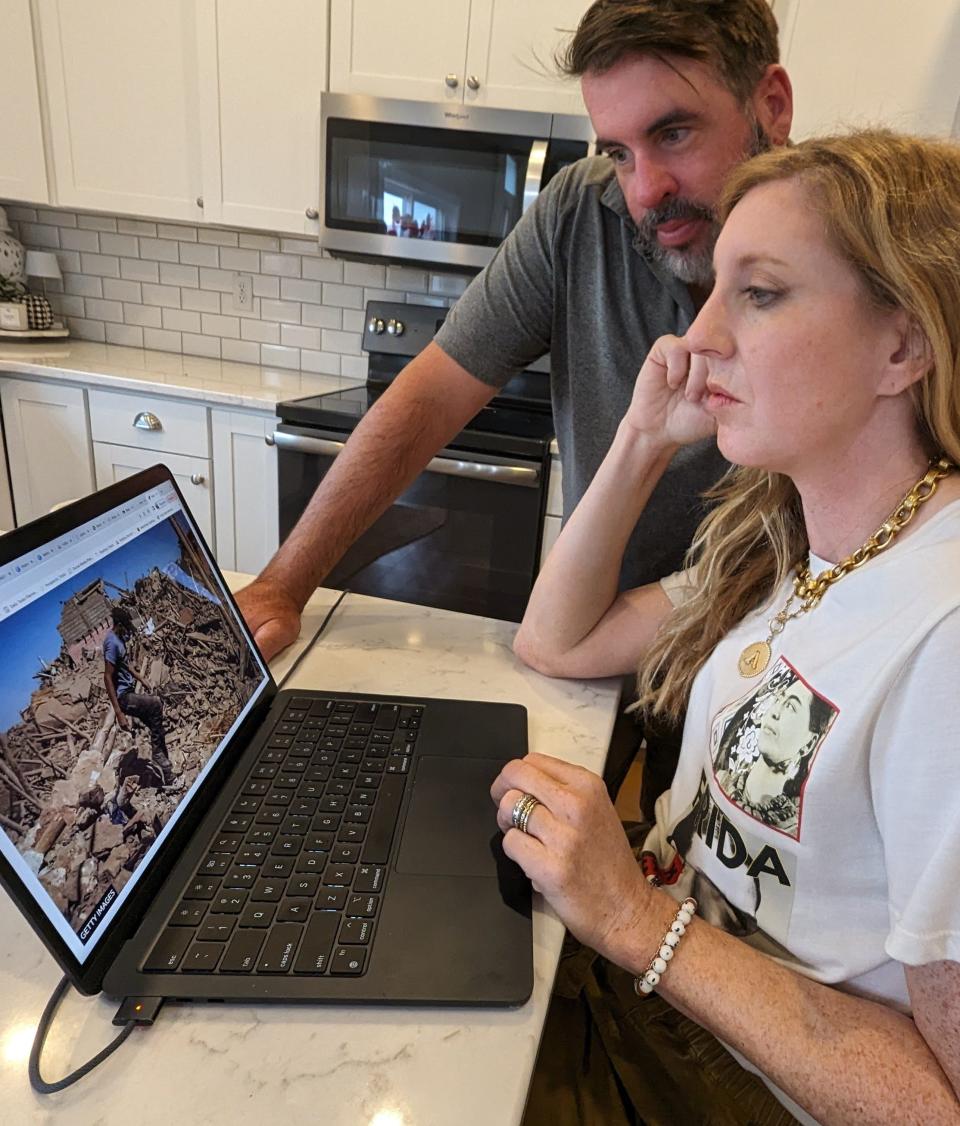Hakes: Morocco earthquake was sobering aftermath to local couple’s dream trip

When Ashley Bermel of North Liberty was a little girl, she remembered her grandparents visiting Morocco and returning with a special keepsake.
“It was a figurine of a camel made out of leather,” she told me. “And it had creepy eyes.”
And yet, the camel and stories of the trip to North Africa intrigued her. Some three decades later in January of this year, she and her husband Jesse took a nine-day guided trek to Morocco, extensively exploring the ancient cities and tiny mountain villages and desolate desert terrain in a Toyota Land Cruiser.
Both had studied abroad in college – Italy and Australia -- and visited other countries together after their marriage. This, however, was a dream trip to coincide with Ashley’s 40th birthday. They came back enchanted.
But never did Ashley expect to be writing a Facebook post a few months later that opened with this:
“On Friday, a powerful magnitude-6.8 earthquake shook an area just 50 miles from Marrakesh in Morocco's High Atlas Mountains, tragically claiming the lives of over 2,000 people. It's hard to believe, but I celebrated my 40th birthday in that very location.”
Her emotional post described the positive contact with the people they met and their fondness for the country. She added a few trip photos and urged Facebook followers to support rebuilding efforts if they could.

A country in recovery
Casualties in catastrophes always seem to mount.
In the month since the quake, the count has risen to nearly 3,000 deaths and as many injuries. Some estimates report 50,000 Moroccan buildings damaged or destroyed, many in the remote mountain villages, leaving thousands hurt and homeless in places where a rough dirt road might be the only access. It was said to be that nation’s deadliest quake in six decades.
“We were utterly devastated when we heard,” said Jesse. They had traveled the High Atlas Mountain backroads and seen many homes and structures like the ones that appeared on their TV screen as piles of rubble, often with residents trapped beneath.
Through WhatsApp and other sources, the Bermels were relieved that both their tour guide and driver were safe. Their guide reported that his wife, daughter, and father were in the mountains at the time, but miraculously escaped injury.
By nature, the Bermels are interested in almost everything. It was no surprise they found the January trip to Morocco to be exhilarating – especially their contact with its citizens.
“The first day, I thought: These are really good people,” said Jesse. “Within two days, it was like: This is an incredible country.”
“We met a young boy, about six years old,” said Ashley. “He had to scale a pretty dangerous mountainside every day to reach his school. That made Jesse and I think about how we live here. Do our children appreciate that we drive them to school in a climate-controlled vehicle? Do we need to try to make our kids more independent?”
They also noticed a high level of respect between older and younger generations in the villages, each helping to support the local economy in their own way. Older villagers often tend sheep in the mountains while the younger ones, cell phones in hand, guided tourists.
“We were told there are no assisted living complexes,” said Ashley. “The village is your extended family. For example, one guy was 90, living alone, with neighbors and friends cooking for him and tending to his house and other needs.”
They envisioned this extended family concept had to kick into high gear after the quake.

More: Everything you need to know about the inaugural Get Outside Festival
Morocco's energy-efficient infrastructure wasn't prepared
Jesse’s career is in renewable energy, and he was enthralled by using ancient building techniques combining stone, wood, and mud to build energy-efficient homes appropriate for the climate.
“The homes are all built by hand,” he marveled. “You’d see a crew of 20 people building a house for their families. No architects or hired contractors involved.”
Unfortunately, he added, these structures do not do well in earthquakes.
Ashley, with 17 years in the real estate business, found fascination in Moroccan dwellings. The homes they saw often appeared unfinished, with the first floor complete and the upper floor under construction. They learned that families move in when the house is fully paid off, and the top floor is built only when funds allow. The idea that people build their homes entirely debt-free with no mortgages amazed her.
“Another big difference in housing compared to the U.S.,” she said, “is that the houses have a very unassuming and primitive look on the exterior. People do not want to display their wealth or status on the outside.”
And yet, it was a different story inside homes. Interior rooms were often enhanced with ornate tapestries, beautiful hand-painted tiles and hand-carved hardwood trim and other features using wood from the Atlas Mountains.
The Bermels agreed that when tourist countries suffer catastrophe, there is often an economic conundrum, as with the recent Maui fire. Visitors don’t want to intrude on people working through death, devastation, and reconstruction, and yet the locals need those precious tourist dollars.

A tourist's destination
Prior to the pandemic and quake, Morocco was said to welcome nearly 13 million tourists a year. “Most of the tourists we saw were from Italy, Spain, Germany and the UK,” said Jesse. “We didn’t see our first Americans until later, and that was out in the desert.”
Ashley says she wants to return to Morocco, maybe in 2025, to contribute to the tourism the nation depends upon, plus continue her artistic interest in its culture, tapestries, and ceramics. She says her mother also plans to support its tourism economy with a group trip with friends.
More: Hamburg Inn No. 2 reopens under new ownership with same look and feel
With that in mind, did she put aside her childhood concerns about camels on the January trip and take the typical tourist ride on one?
“Of course,” she said. “These people make it their life goal to show their love and culture, and they need the tourists to keep coming. There are lots of areas you can go to if you are looking to be inspired.”
For interested donors, the Public Broadcasting Service recently listed several organizations providing relief supplies and services to the earthquake zone. They included CARE, UNICEF, GlobalGiving, IFRC and the High Atlas Foundation.
Richard Hakes is a longtime columnist for the Iowa City Press-Citizen.
This article originally appeared on Ames Tribune: Hakes: A dream trip to Morocco has a different feel after earthquake

